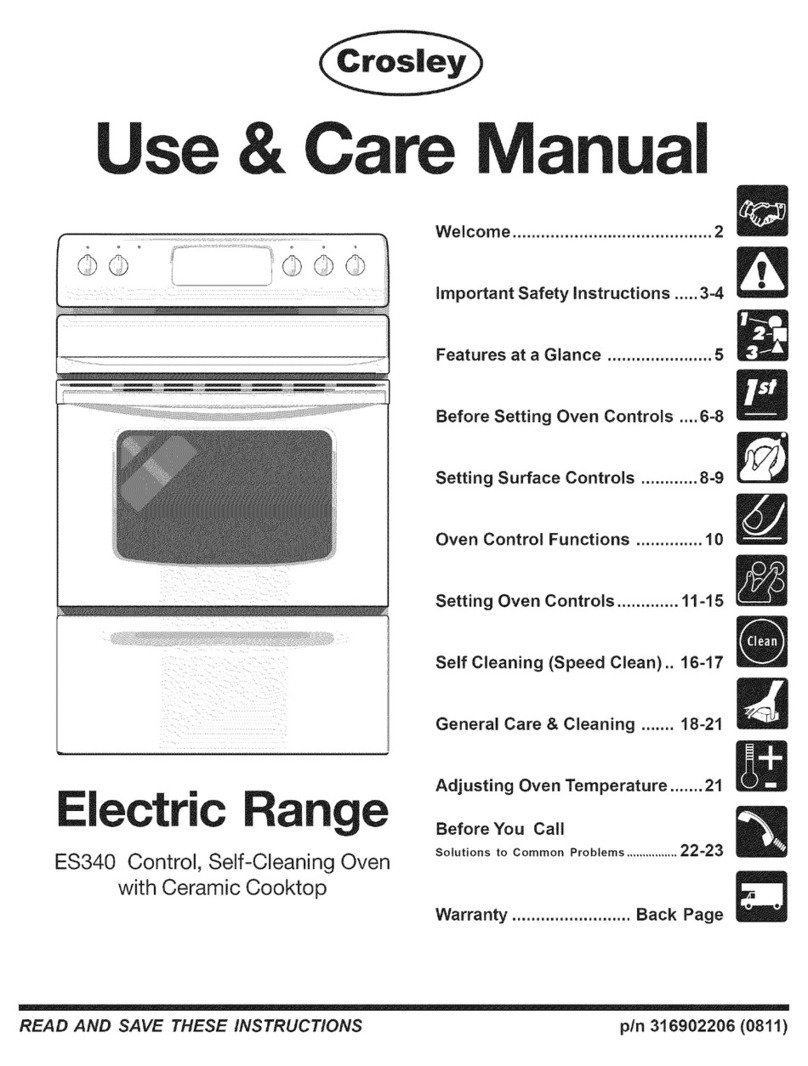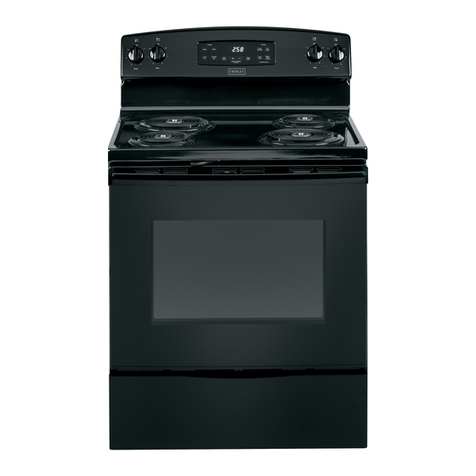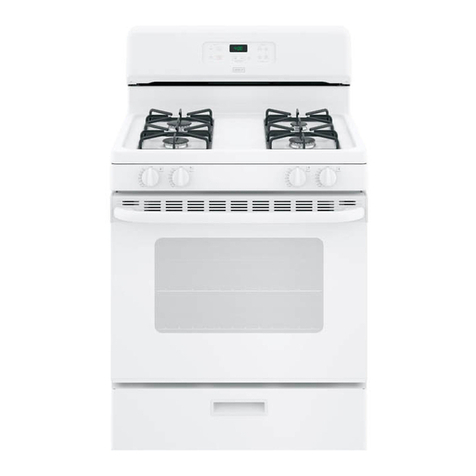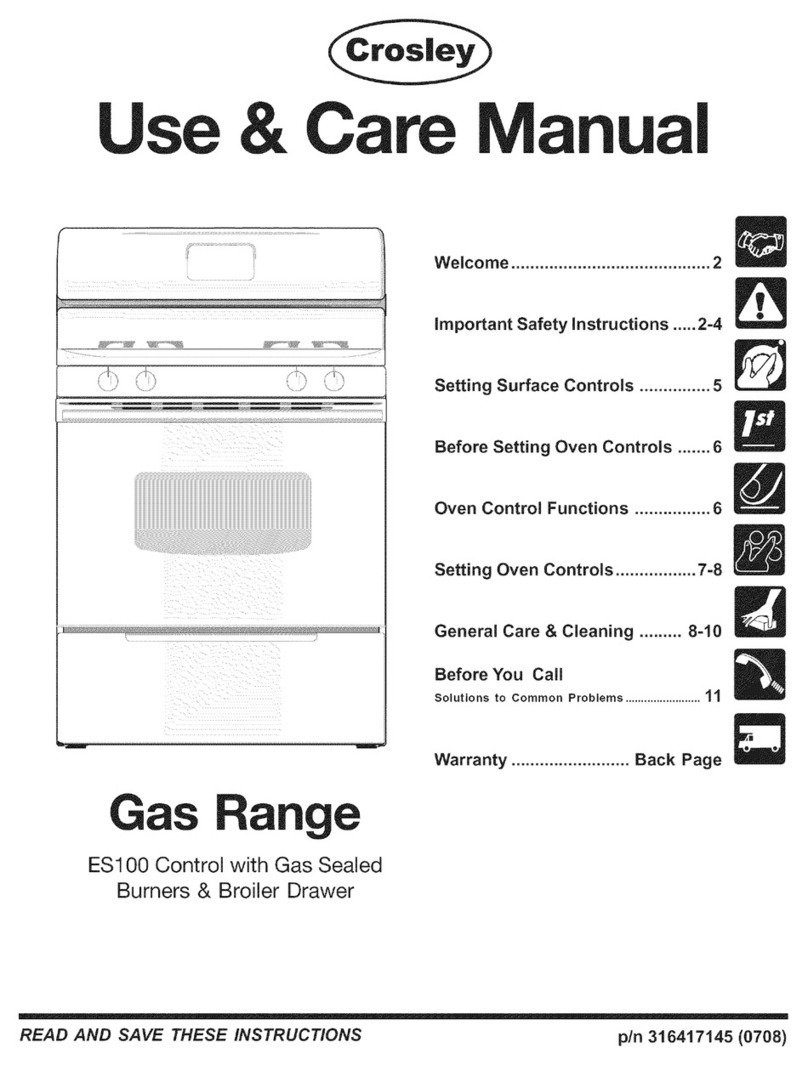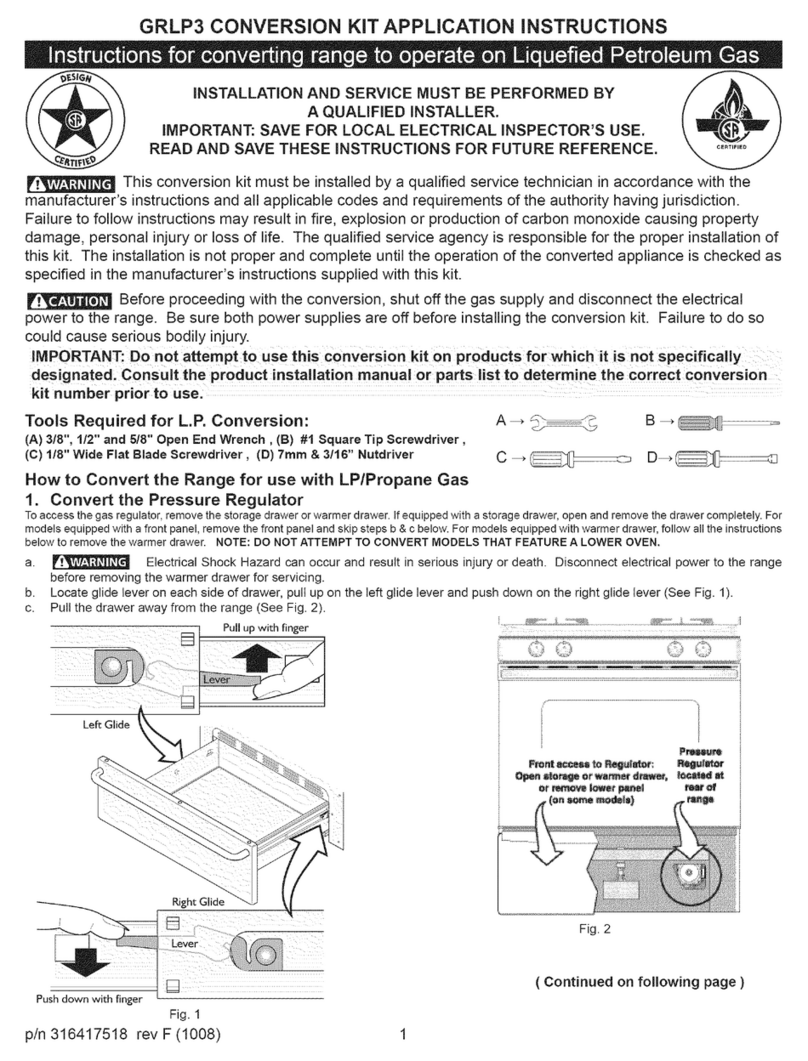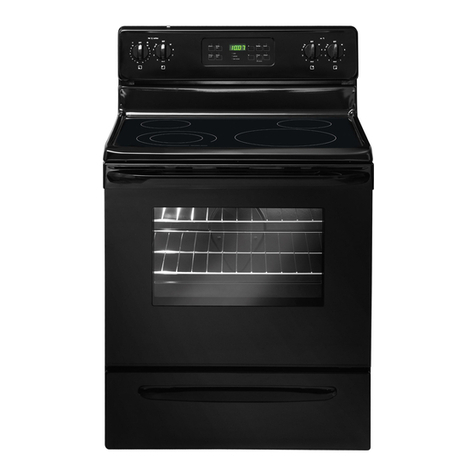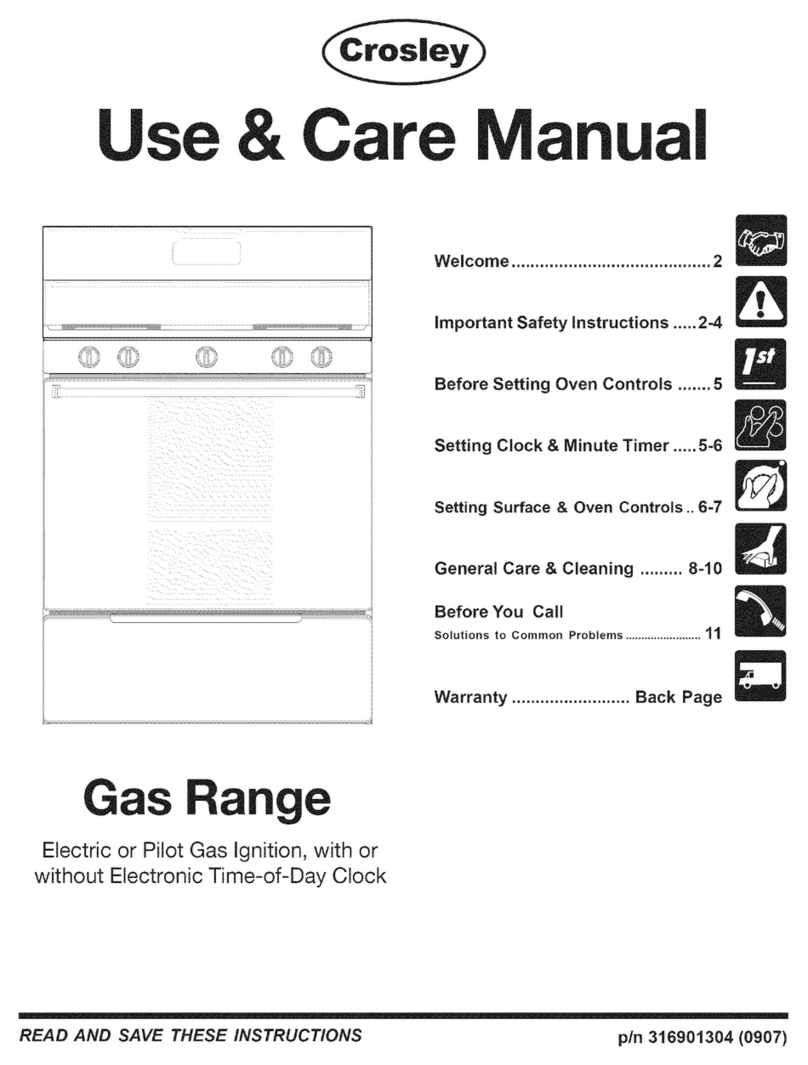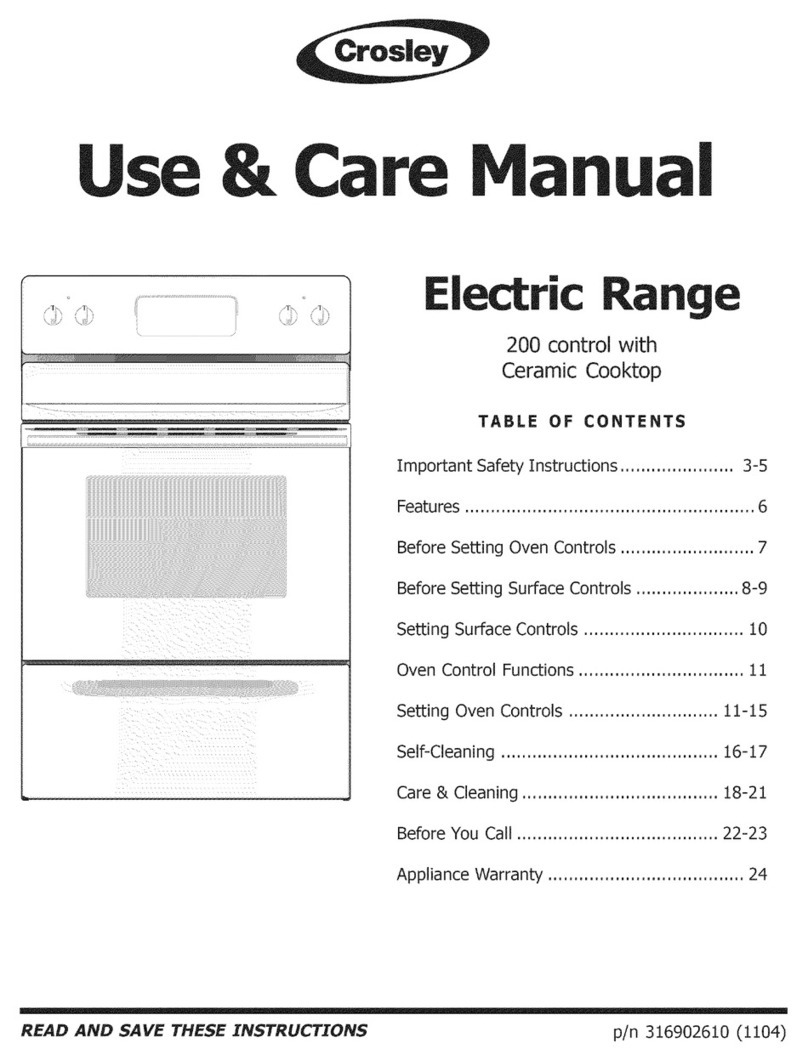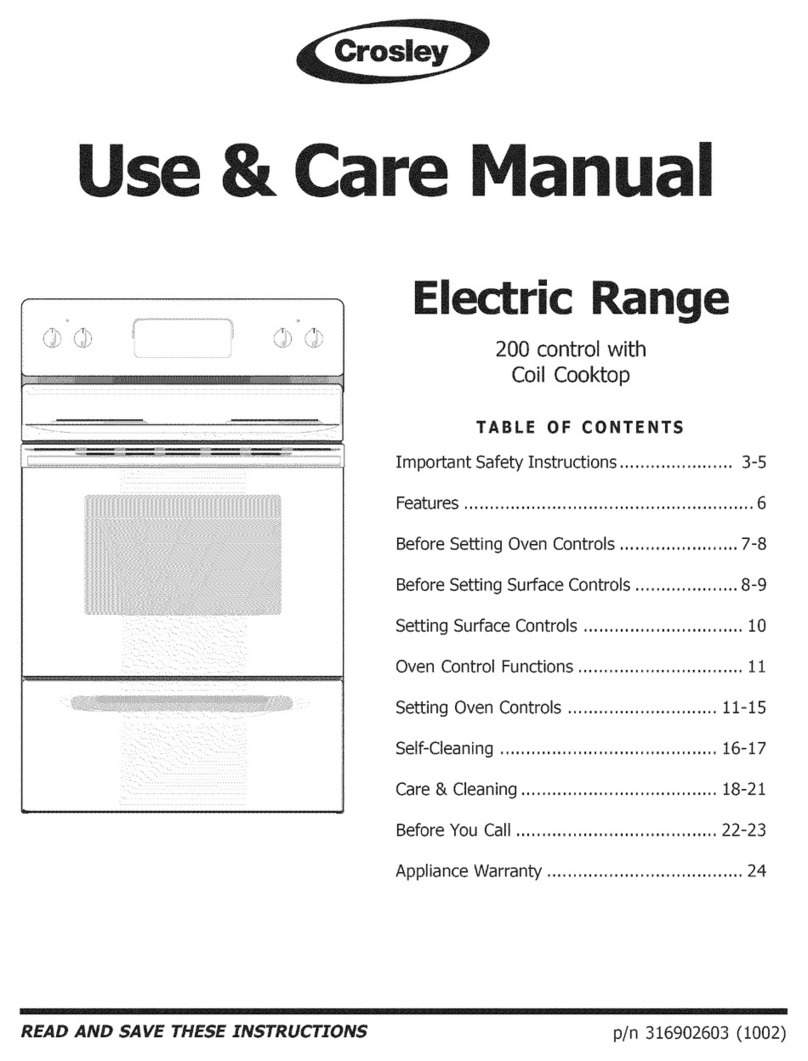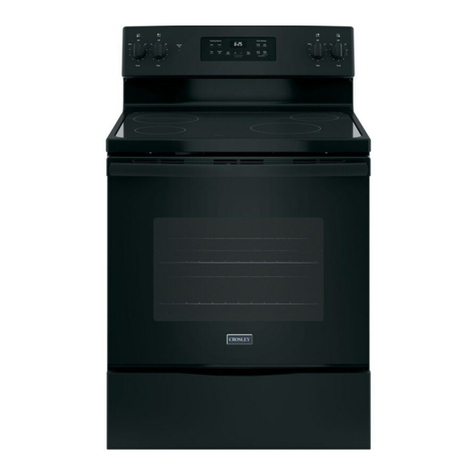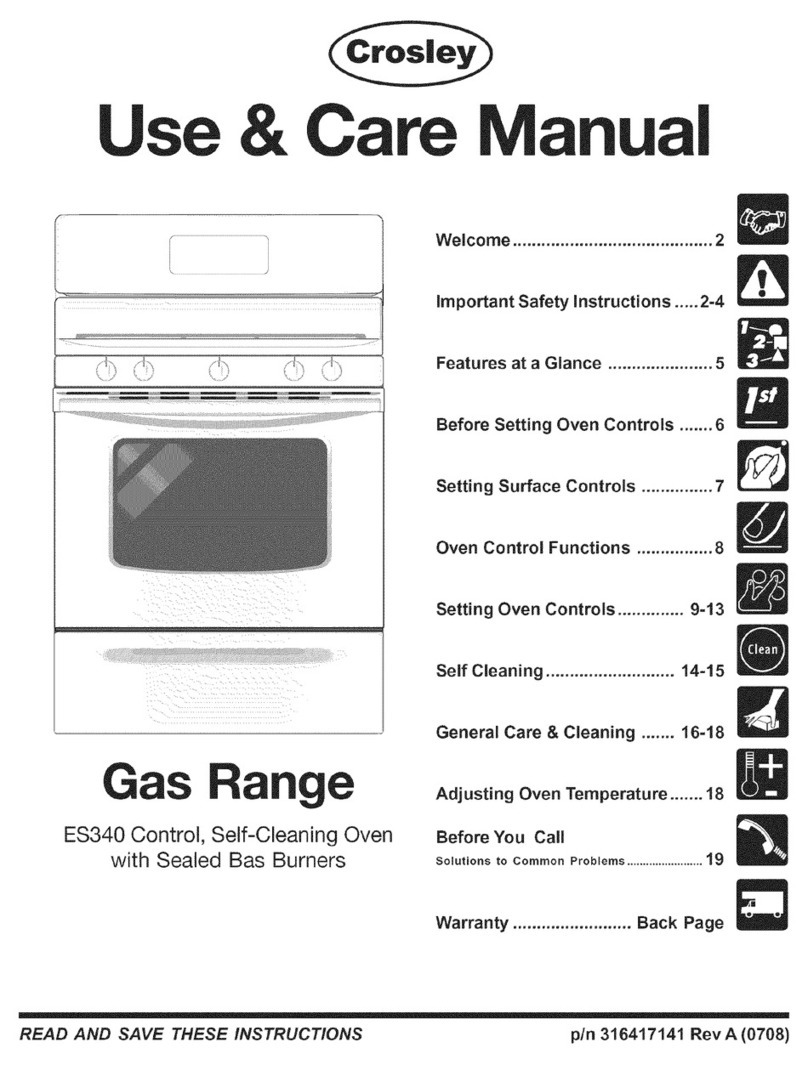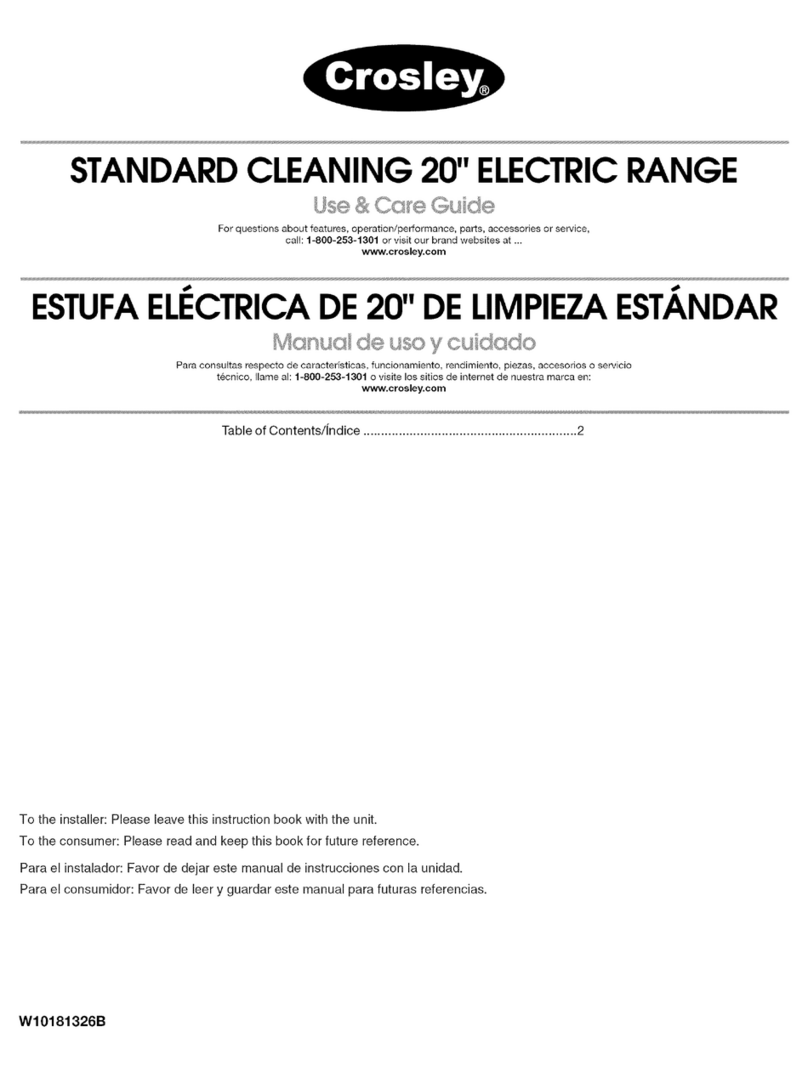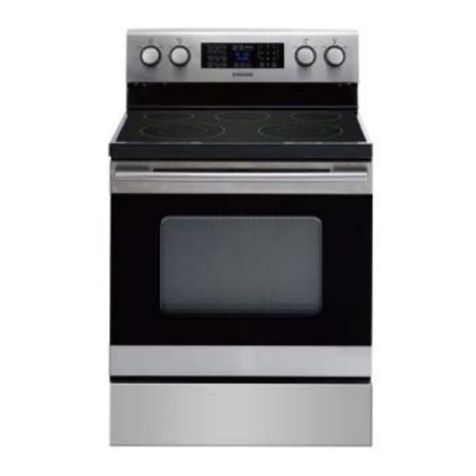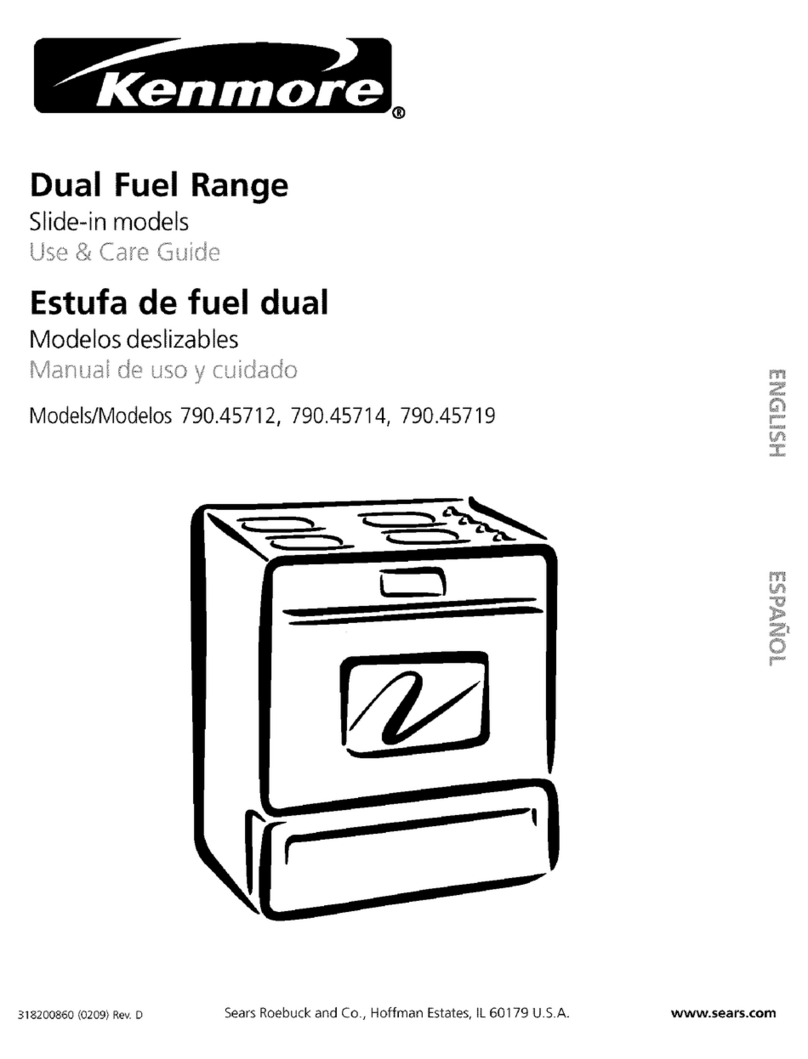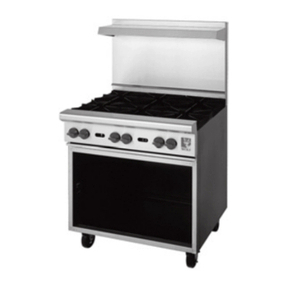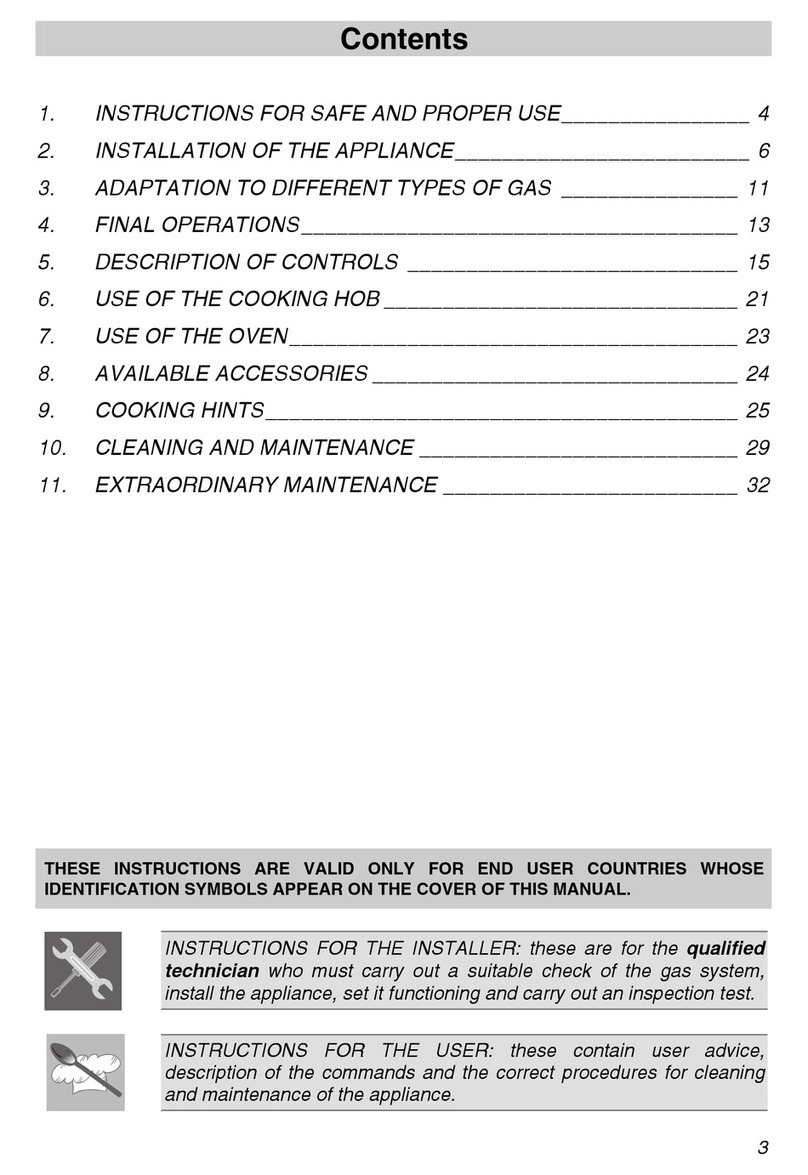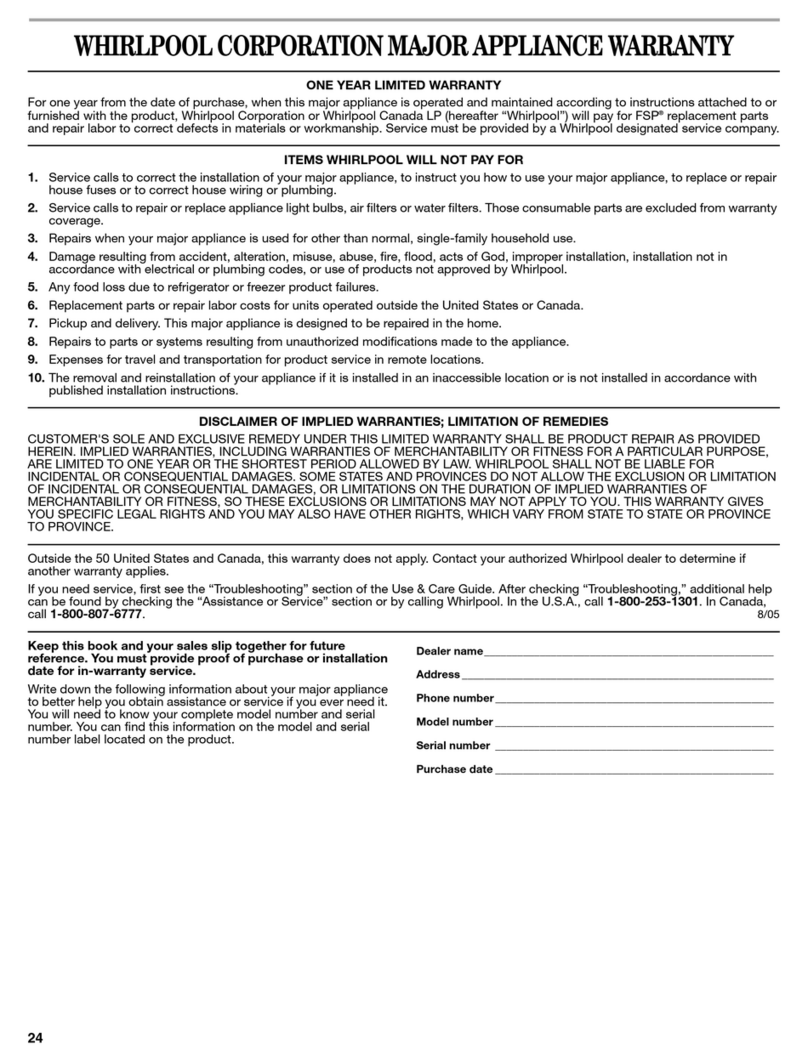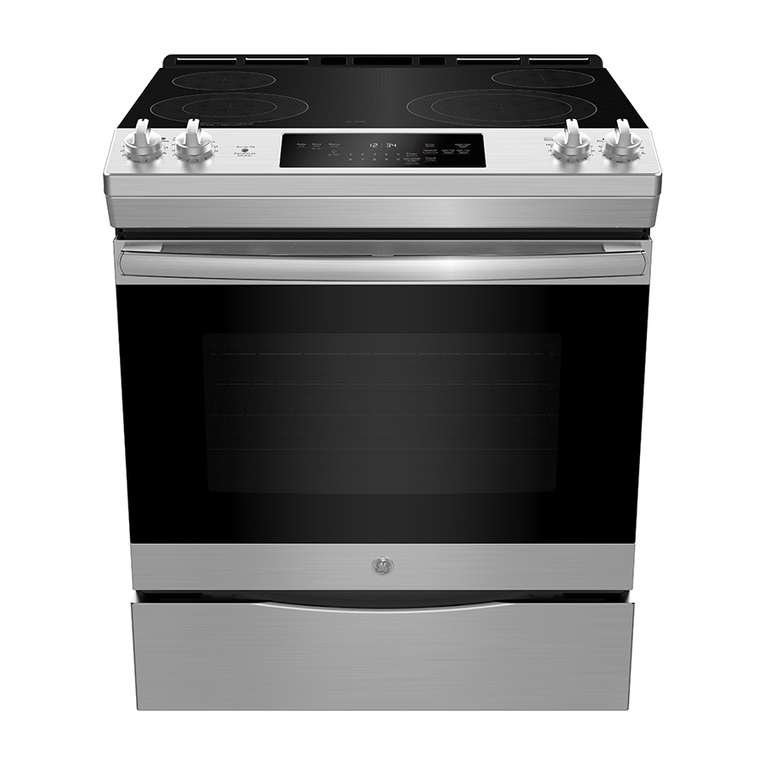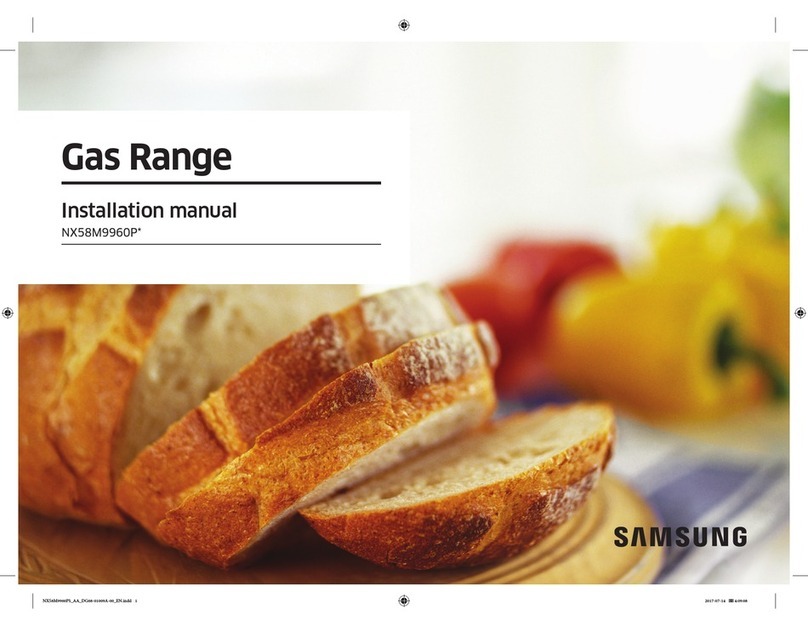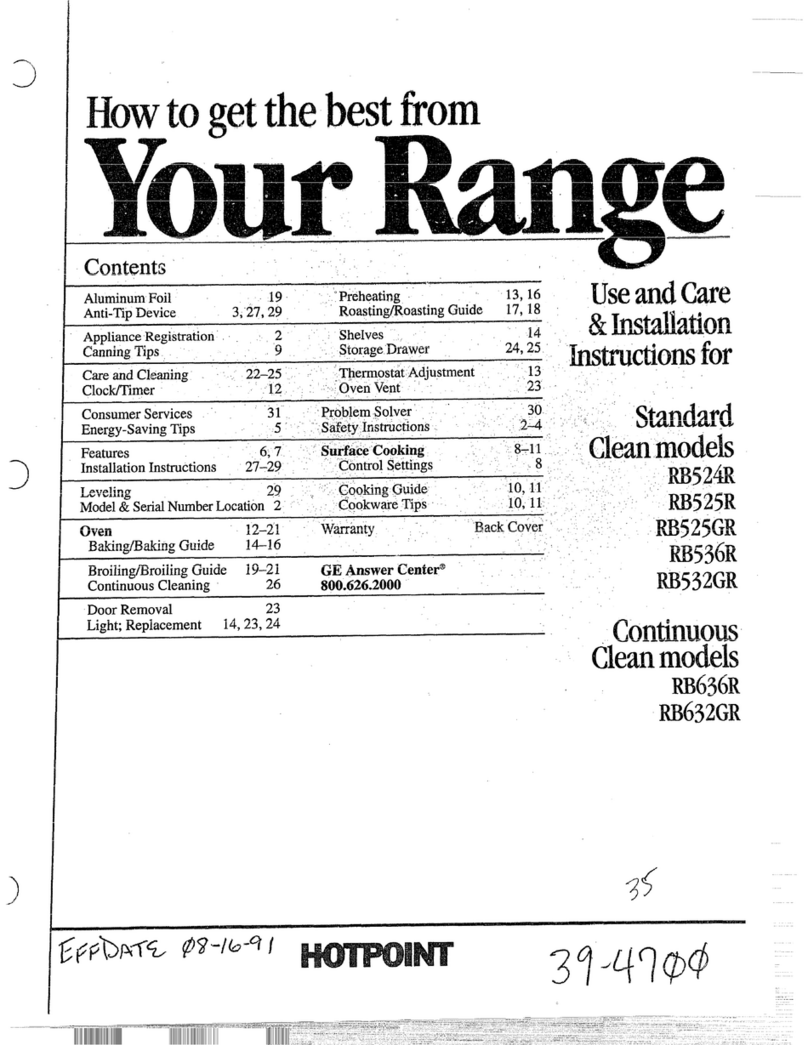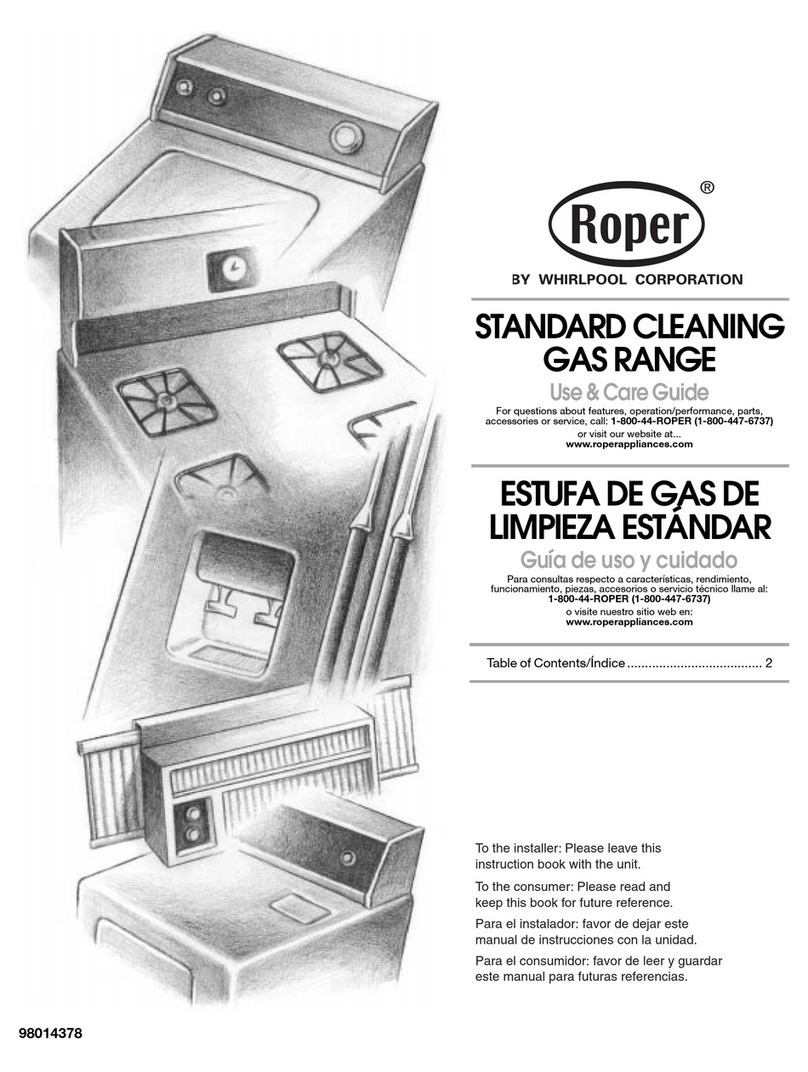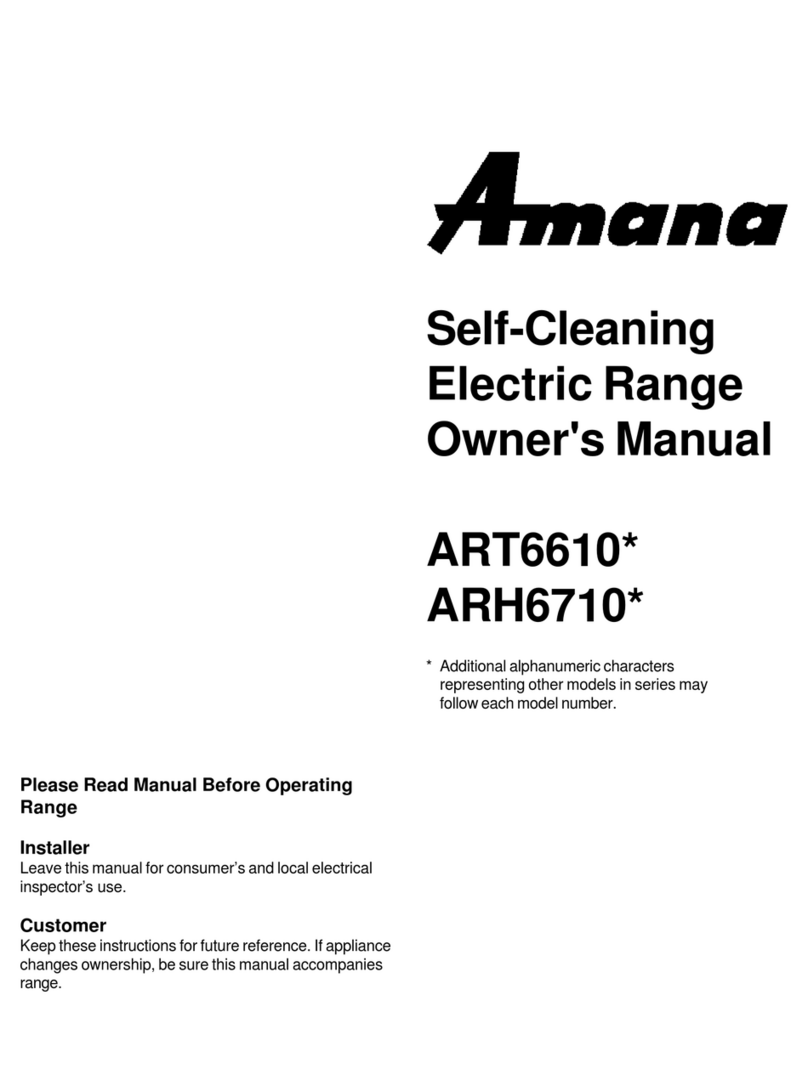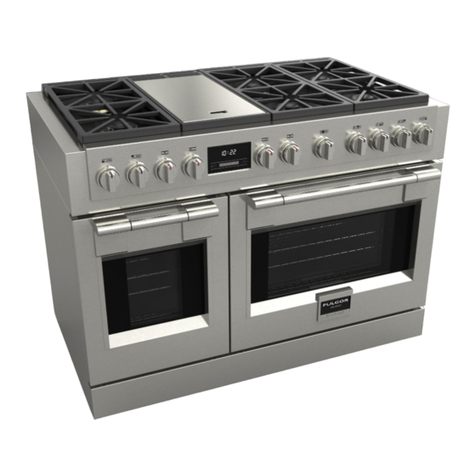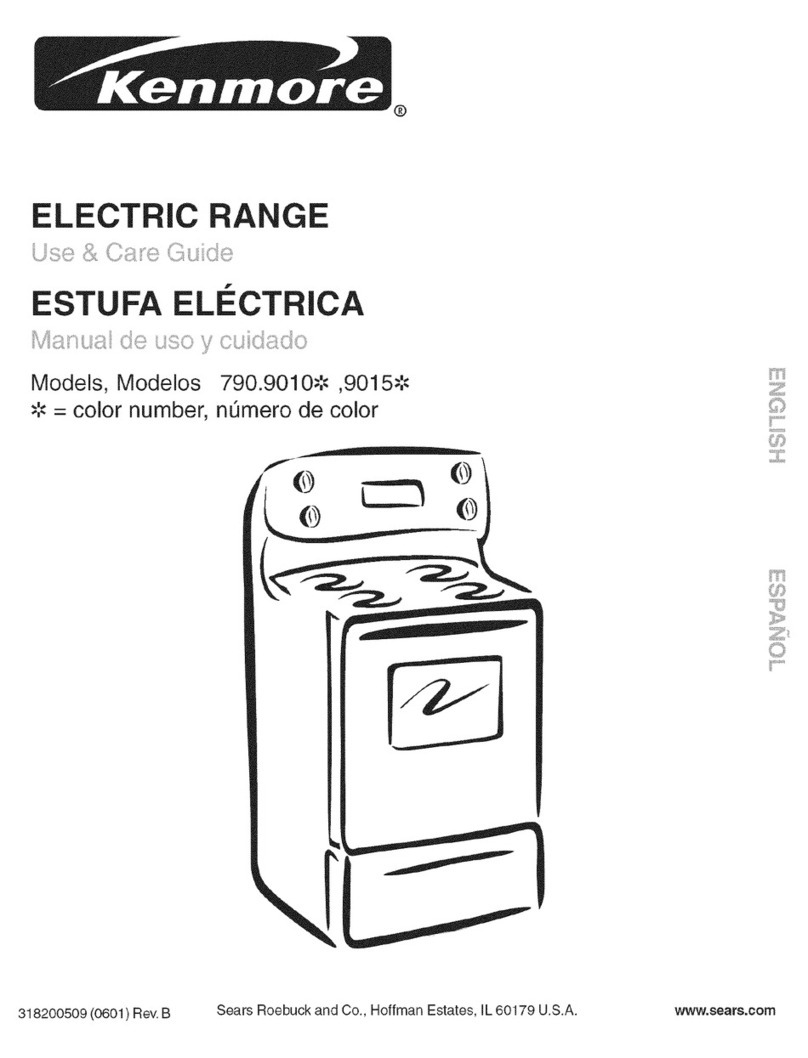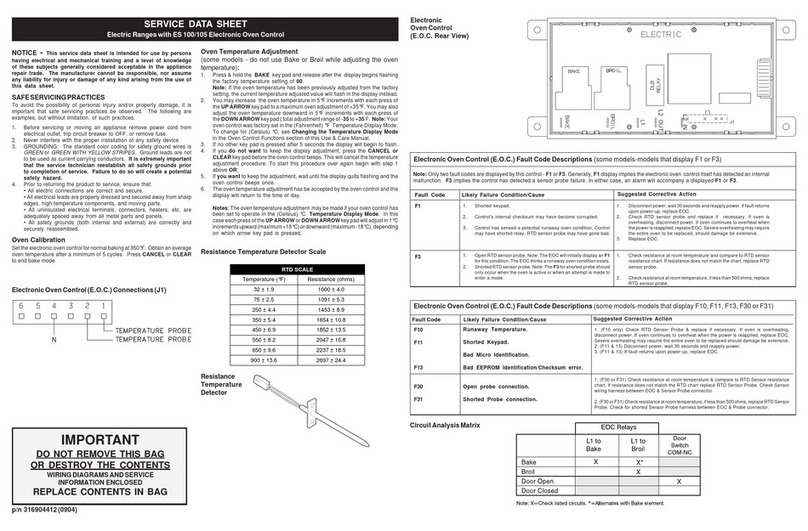
Important Safety Instructions
Read all instructions before using this appliance. Save these instructions for future reference.
This manual contains importantsafety symbols and instructions. Please payattention tothese symbols and follow alJinstructions gwen.
This symbol will help alert you to situations that may cause serious bodily harm. death or property damage.
This symbol will help alert you to situations that may cause bodily injury or property damage.
• Remove all tape and packaging before using the range.
Destroy the carton and plastic bags after unpacking the
range. Never allow children to play with packaging material.
•Proper Installation--Be sure your appliance is properly
installed and grounded by a qualified technician in
accordance with the National Electrical Code ANSI/
NFPA No. 70 latest edition and local electrical code
requirements. Install only per installationinstructionsprovided
in the literature package for this range.
Ask your dealer to recommend a qualified technician and an
authorized repair service. Know how todisconnect the power
to the range at the circuit breaker or fuse box in case of an
emergency.
•User servicing--Do not repair or replace any part of the
appliance unless specifically recommended in the
manuals. All other servicing should be done only by a
qualified technician. This may reduce the risk of personal
injuryand damage to the range.
• Never modify or alter the construction of a range by
removing leveling legs, panels, wire covers, anti=tip
brackets/screws, or any other part of the product.
•All ranges can tip.
•injury to persons could result.
• install anti-tip device packed with range.
• See installation instructions.
_To reduce the risk of
tipping, the rangemust be secured by
properly installed anti-tip bracket provided
with the range. To check if the bracket is
installed properly, visually check that rear
leveling leg is inserted into and fully
secured by the anti-tip bracket by
removing lower panel or storage drawer.
For models with a warmer drawer, grasp
the top rear edge of the range and
carefully attempt to tilt it forward. Refer to
the installation instructions for proper anti-
tip bracket installation.
Stepping, leaning or sitting on the doors or
drawers of this range can result in serious injuries and
also cause damage to the range. Do not allow children to
climb or play around the range. The weight ofa child on an open
door may cause the range to tip, resulting in serious burns or
other injury.
Do not store items of interest to children in
the cabinets above arange or on the backguard of a
range. Children climbing on the range to reach itemscould be
seriously injured. 3
Do not use the oven or warmer drawer (if
equipped) for storage.
Never Use Your Appliance for Warming or
Heating the Room.
* Storage in or on Appliance--Flammable materials
should not be stored in an oven, warmer drawer, near
surface units or in the storage drawer. This includes
paper, plastic and cloth items, such as cookbooks, plasticware
and towels, as well as flammable liquids. Do not store
explosives, such as aerosol cans, on or near the range.
,,Do Not Leave Children Alone--Children should not be
left alone or unattended in the area where appliance is
in use. They should never be allowed to sit or stand on any
part of the appliance.
* DO NOTTOUCH SURFACE UNITS, AREAS NEARTHESE
UNITS, HEATING ELEMENTS OR INTERIOR SURFACES
OF THE OVEN. Both surface units and oven heating elements
may be hot even though they are dark in color. Areas near
surface units may become hot enough to cause burns. During
and after use, do not touch, or let clothing or otherfiammable
materials touch these areas until they have had sufficient time
to cool. Among these areas are the cook top, surfaces facing
the cook top, the oven vent openings and surfaces near these
openings, oven door and window.
.Wear Proper Apparel--Loose=fitting or hanging garments
should never be worn while using the appliance. Do not
let clothing or other flammable materials contact hot surfaces.
. Do Not Use Water or Flour on Grease Fires--Smother
the fire with a pan lid, or use baking soda, adry
chemical or foam=type extinguisher.
*When heating fat or grease, watch it closely. Fat or
grease may catch fire if allowed to become too hot.
.Use Only Dry Potholders =Moist or damp potholders on
hot surfaces may result in burns from steam. Do not let
potholders touch hot heating elements. Do not use a towel or
other bulky cloth instead of a potholder.
*Do Not Heat Unopened Food Containers = Buildup of
pressure may cause container to burst and result in
injury.
. Remove the oven door from any unused range if it is to
be stored or discarded.
IMPORTANT--Do not attempt to operate the range during
apower failure, ifthe power fails, always turn off the range.
ifthe range isnot turned off and the power resumes, the range
will begin to operate again. Once the power resumes, reset the
clock and oven function.


